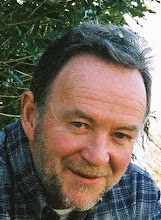Got a copy of The Road (Cormac McCarthy) and read it all in one day. Started it in the Uni Library and finished it when I got home. It is the first post-apocalypse book I have read that has almost everything in our world gone. As I read somewhere every descriptive adjective is the word gray (that's how it is spelled in the book). This is so. The sun rises but is a vague light through a gray sky. The world is burned. The trees are dead; the grass is dead; there are no birds. There aren't many people left either. I've read plenty post-apocalyptic books and seen plenty films on the same theme. This has to be the grayest of them all.
The man and the boy still teach each other things - as two people alone are apt to do - and therefore us about what it means to be human. The man has to teach the boy about evading the bad guys - small groups and sometimes larger groups (an army in tennis shoes) who have embraced rape and cannibalism. The man tell s the boy that when he, the man, is gone - he is dying - the boy will have to rely on his own skill to recognise the good guys. That is an echo of Lenny and George's exchanges when Lenny gets George to recite his 'guys like us' morale boosting speech in Of Mice and Men.
I came away with a feeling of wistfulness from the book rather than the 'jeez we'd better do something quick or we're all doomed' I was wistful because everything else was gone. It seemed to me that when the last people died - how could they continue with nothing replaceable? - there appeared to be nothing to fill the niche, nothing to make the opportunistic evolutionary leap, as it were.
Point of View (pov)
Third person.
There is a passage that begins: The dog that he remembers followed us for two days. I tried to coax it to come but ...
This is the only instance of an 'I' speaking. It seemed so strange when I saw it on the page and also heard it in my head, so much so that even though I kept on reading I had to turn back after a few pages and mark it. I can't find any other instance of an 'I' speaking so directly (to us? well who else?) in the narrative. The third person past tense holds good throughout the book. So what's that bit doing there? It seems so out of place almost as if it had slipped unnoticed past a proofreader cum editor.
Saturday, 12 December 2009
Subscribe to:
Post Comments (Atom)



No comments:
Post a Comment